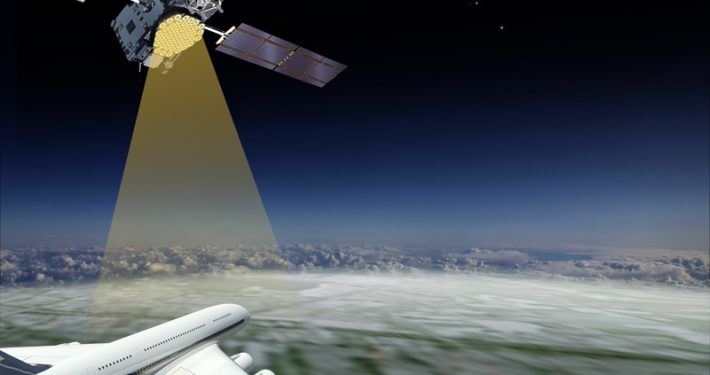Gaining a key position in the promising global market for the downstream side of space
At the end of 2013 NLR conducted a successful test to determine an aircraft’s in-flight position with the aid of signals from Galileo satellites. This is just one of the potential uses of satellite data, which seem to offer endless possibilities. Dutch businesses are keen to be in the vanguard with respect to developing commercial services and products based on satellite data. NLR is supporting them in their quest.
Application of data
The application of satellite data for telecommunications, earth observation and navigation has developed exponentially in the past decades. Satellite data is not only used by pilots, but also by supervisors of drilling platforms and dykes, fishermen and farmers, who are making more and more use of satellite data to gain insight into their working environment. This will result in growing demand for satellite systems and launch facilities, as well as expertise on the best way to generate and apply satellite data.
Upstream and downstream
NLR has a long tradition of developing the so-called ‘upstream side’ of space systems, meaning the development of technology that allows a satellite to function optimally under extreme conditions in outer space. NLR is, for instance, particularly adept at developing cooling systems for satellites. NLR has increasingly been focusing on the ‘downstream side’, the exploitation of space technology; i.e. the storage, processing, accessibility, analysis, and interpretation of satellite data. More and more of such earth observation and other data are available and they are of a sufficiently high standard to make them interesting for end users in the aviation and defence sectors, as well as rail transport, the energy supply sector, the agri-food sector, and various forms of water management.
Downstream growth market
The downstream side is a growth market and Dutch businesses have the ambition to be among the leaders in this market. One important catalyst in this exponential growth is the EU’s decision to apply an open-data policy in making earth observation data from its Sentinel satellites available free of charge from the middle of 2014. NLR has more to offer than just a helping hand. We have extensive expertise in data processing, data management, and data analysis, we can interpret and assess the quality of satellite data, and we can advise how the information may be applied.
Smaller businesses
By developing demand-driven, innovative space technology, we aim to make a significant contribution to strengthening the competitive clout of Dutch businesses. NLR offers Dutch business its space system expertise and facilities, and it also helps small and medium-sized businesses connect with major European research programmes such as Horizon 2020, in which space technology is a key area of expertise. In so doing, NLR supports the ambitions of industry and smaller businesses in the Netherlands, helping them gain and maintain a key position in the promising global market for products and services on both the upstream and downstream sides of space technology.

